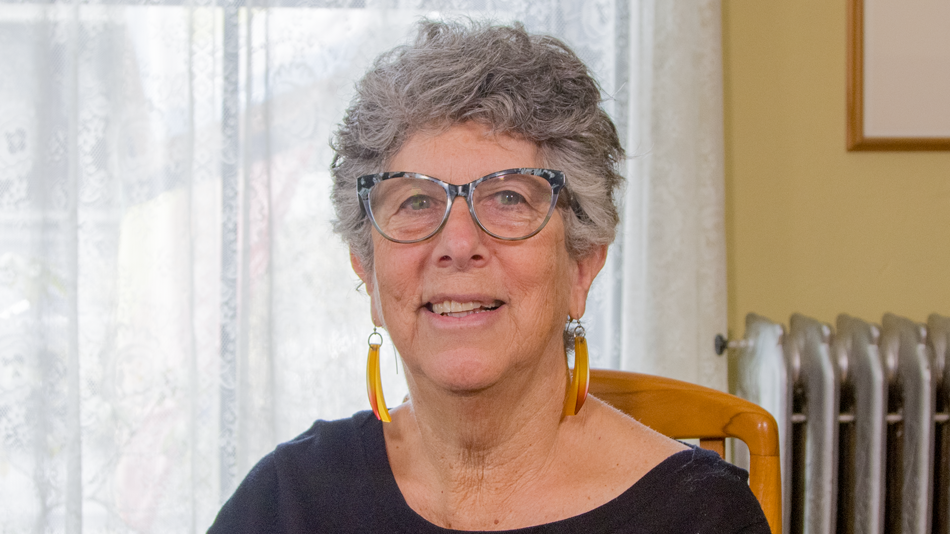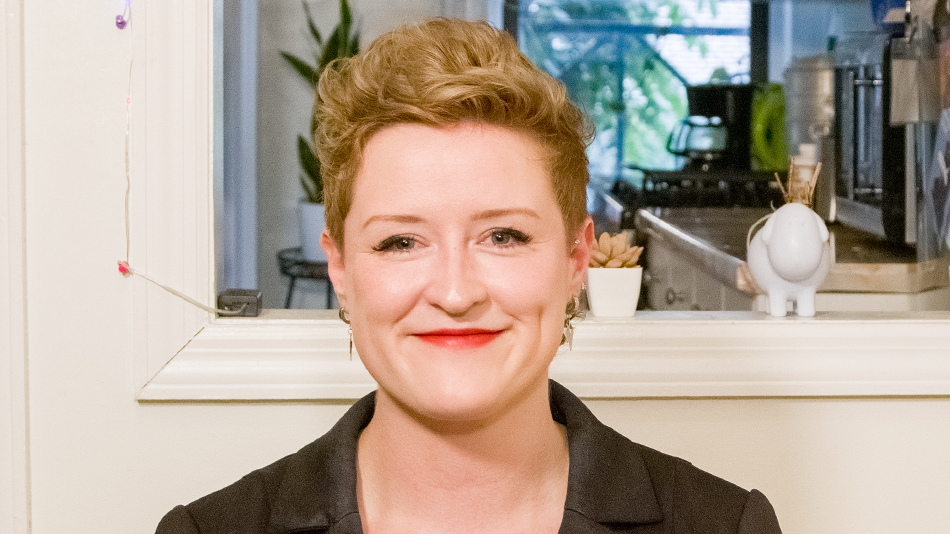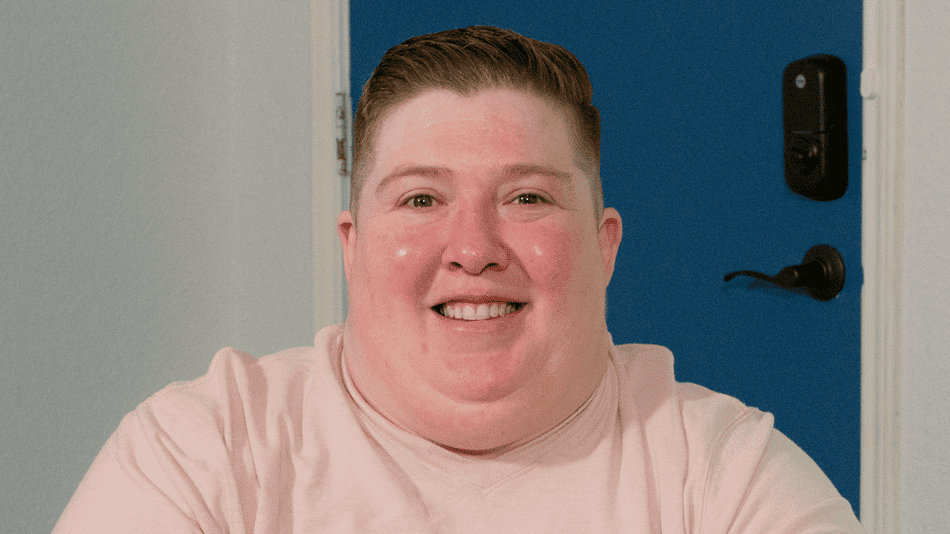Hi, my name is Nicole Bashor and I’m originally from Harrisburg, Pennsylvania.
I ended up going to college at the University of Pittsburgh, and it was quite a transition because growing up in Harrisburg, I didn’t really know anybody that was LGBTQ and didn’t really know what that meant or what visibility was. And so going to the University of Pittsburgh was a brand new environment where I was surrounded by people who identified as LGBTQ for the first time in my life and started to understand that I was part of that community. Early on at the University of Pittsburgh, I became head of the LGBTQ organization and really started living authentically, openly as a lesbian.
After college, I moved to Chicago and started working at a very queer-affirming place where almost every employee identified as LGBTQ. After a couple of years working for that company, I decided to go back to law school and ultimately switched gears and started working in the legal profession. The legal profession is not exactly the same as a queer-affirming, loving environment and so really moving into a law firm was a completely different experience. From the standpoint of patent law, you need an engineering background to go into that area. There are only about 50,000 registered patent lawyers in the US and of the 50,000, less than 20% are women, and even fewer are women of color, people of color, LGBTQ identified individuals.
It really forced me to go back into the closet in a way just because I was brand new, I was working with people who were more senior to me who had client relationships, and I was scared of damaging those relationships. So very early on in my legal career, I didn’t really understand… I didn’t really see anybody visible in a senior leadership position who was LGBTQ, nor did I understand what it meant to be visible or why that was important. So for many years, even though if you googled me, you could see my being the president of the LGBTQ club in college, you could see I was part of Equality Illinois and ultimately the LGBT bar, but those were not things that I was leading with in my day-to-day job.
I didn't really see anybody visible in a senior leadership position who was LGBTQ, nor did I understand what it meant to be visible or why that was important.
A few years after that, I got married to a woman and we, after living in the city of Chicago for 20 years, were looking to buy a house. We originally moved to Evanston, which is the first suburb north of Chicago to test it out, so to speak. We ended up finding a house in a suburb just north of Evanston called Wilmette, and Wilmette is probably the most homogeneous community that you can find around the suburbs of Chicago. My wife and I had a lot of debate about this particular issue and how comfortable we felt moving here, whether we’d be welcome, especially after living in a city for so long.
Very early on there was a discussion about how visible we wanted to be in the neighborhood, and we ended up putting a rainbow flag extending off the front of our house. It’s like June, it’s Pride month and I think part of it is if you live in a city, if you’re in Philly or New York or Chicago, it’s like Pride month is such a big deal and not having any … it’s not there’s suburban pride, at least not here, so there’s not any visible representation of Pride month.
I think we were a little bit hesitant just in general because of the neighborhood, but there wasn’t a debate about it. We were both like, Yeah, that’s a good idea, let’s go and do that. But I remember very specifically, like a month or two after we moved in, we moved in in March, so I guess three months from a Pride perspective, we had put our flag up and one of our neighbors … so my wife and I were both outside with our kids working in the yard and a neighbor walked by, an older woman who stopped us and said … who looked at the flag, and my heart stopped and I was like, Oh my gosh, what’s going to happen here?
So she said to my wife, “Well, that’s a really pretty flag. What country is that from?” My wife explained that it was representative of LGBTQ+ people and meant that it was a welcoming environment.
She was very respectful and took in that information and said, “Well, thank you for sharing,” and kind of continued on her way she happened to be walking by. That was interesting, but also reaffirming, Okay, this is what it means to live in a neighborhood like this.
A couple of months after that, we received an email from a neighbor. My wife and I were at the dinner table with our kids and at the very end of dinner, I was looking at my phone and saw that there was an email from somebody that I didn’t recognize. So I opened the email and started to read it and realized it was from a neighbor and it started out and said, “You don’t know me, but I contacted some other neighbors to get your email addresses, so I hope that’s okay. But I wanted to let you know that my sixth grade daughter just came out and a big reason that she felt comfortable in doing that was because of your rainbow flag and that she felt comfortable in the neighborhood and knew that there were supportive families and people that would accept her for who she is.”
The tears were flowing, both of us were crying and really having grown up in a place that’s … not understanding the importance of visibility, I think in the queer community we talk about you need to be visible and I think we inherently understand that it is important, but actually to have real life examples like that has never happened to me before. It really was a moment where I recognized the importance and the impact that we can have on everybody really, but in this case a kid who was really struggling to find their identity and I’m sure what they thought was a very homogenous community as well.
So that was the genesis of it and as a result of that and being in the legal profession for a number of years, I think my viewpoint on all of that has changed as well. I am very open and visible. I think all of my colleagues know at this point and in a very open way, my clients know, certainly on my bio in the website, and it’s not something that is hidden from anybody at this point. In some ways I think we have an obligation to now be visible and make sure that the younger generation and everybody feels comfortable and can see people be successful and out in their everyday lives in any profession, in any neighborhood, and know that they will be supported and cared for and valued as a result of who they are.








Share